Trouble for Newsom?
A new poll show a very close race.
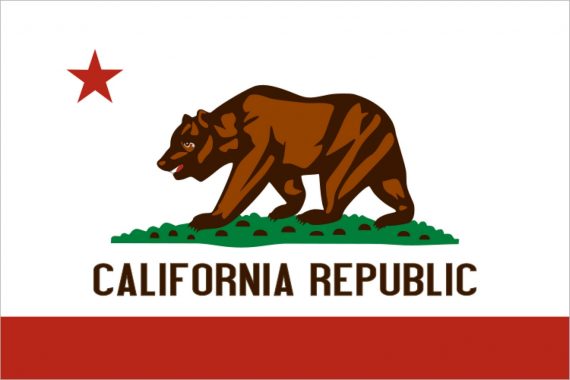
The LAT reports: Likely California voters now almost evenly split on Newsom recall, poll finds.
Californians who say they expect to vote in the September recall election are almost evenly divided over whether to remove Gov. Gavin Newsom from office, evidence of how pivotal voter turnout will be in deciding the governor’s political fate, according to a new UC Berkeley Institute of Governmental Studies poll co-sponsored by the Los Angeles Times.
The findings dispel the notion that California’s solid Democratic voter majority will provide an impenetrable shield for Newsom, and reveal a vulnerability created by a recall effort that has energized Republicans and been met with indifference by many Democrats and independent voters.
The poll found that 47% of likely California voters supported recalling the Democratic governor, compared with 50% who opposed removing Newsom from office — a difference just shy of the survey’s margin of error.
This is contrasted with 36% of registered voters who say they would vote to recall Newsom.

Granting that this is one poll and that modeling turnout for special elections like this one can be tricky, it goes to show that turnout matters.
Even though Democratic voters far outnumber Republicans in California, the GOP’s enthusiasm over the recall promises to inflate the potency of the anti-Newsom vote in September, said Mark DiCamillo, director of the poll. Nearly 90% of Republicans expressed a high level of interest in the recall election while just 58% of Democrats and 53% of independent voters were as interested, the poll found.
Talk radio host Larry Elder leads the field of potential replacements should voters vote to recall Newsom.

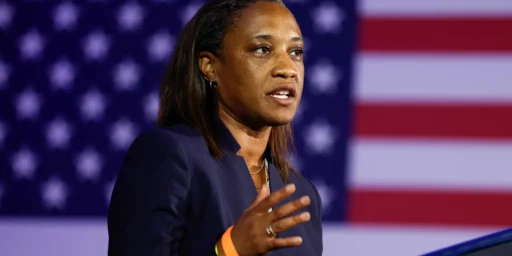
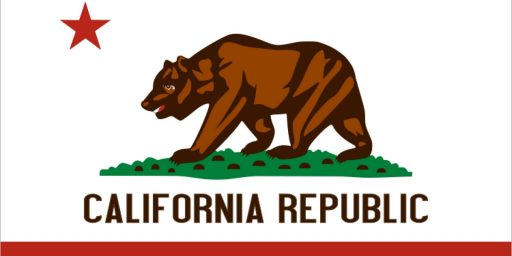
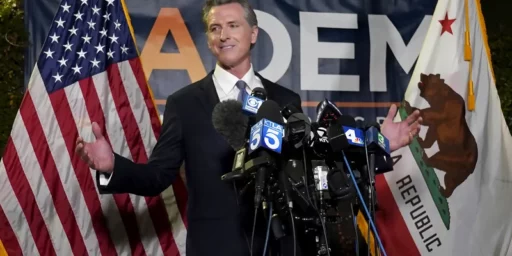
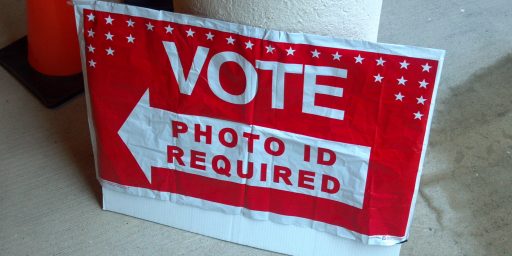
Perhaps a problem in recall elections, is that there’s no strong impetus to vote to retain the current governor (or whatever official is being recalled), while the opposition may feel strongly about removing them.
@Kathy: Scott Walker was able to generate a lot of enthusiasm for retaining the governor when he easily survived his recall election. But Walker’s biggest asset isn’t available to Newsom, piles of Koch money.
It’s bad for Newsom that he’s having to reapply restrictions when we all expected to be pretty well over COVID. Maybe not getting vaccinated to own the libs is working.
As a Californian, all I can say is I’ll believe it when I see it.
During the last recall, polling did not reflect the final outcome until maybe a week before the election. This pattern holds in some important proposition votes, too.
So, Republicans are banking on yet another variation of voter suppression – hold the election at an oddball time when the typical voter isn’t paying much attention. You know, a stealth election.
We could call this the stealth recall. Forget about, you know, electoral fairness, and such quaint ideas as “democracy”.
People get the government they deserve. California is no exception.
= a 3% difference. I think they are way wrong on their margin of error.
And voter suppression? I’ll take gaming the system instead, like the various bond measures that are never on the same ballot as Presidential elections, but you never cry voter suppression then!
And, if there is a vote to recall, the governor is then the candidate out of 40 or so who gets the most votes, almost certainly someone with less votes than votes to keep Newsom. It’s a really poorly structured recall process, where even plurality rule is thwarted.
Newsom should be running to replace himself. He would be the odds on favorite to win then.
@Jay L Gischer: California was a lot less blue at the time than it is now–it voted for John Kerry a year later by just 9.95 points, technically single digits.
@Richard Gardner: I’m pretty sure I’ve seen lots of bond issues on presidential ballots. And others that aren’t. Maybe other states are different? That could be. At the same time, the school district tax measures I remember from my youth (we called it the school levy) had a turnout requirement: You must have X percent voting or it doesn’t count, no matter what the victory margin was. So staying home was often a better strategy than voting No. And they didn’t coincide with the usual November election, either. That doesn’t seem like a good idea.
So, even in the data above it’s the “likely voter” screen that makes it look close. The registered voter thing shows what you would expect. So, while maybe Republicans may be excited by this, Democrats, like me, consider it a yawner. Maybe if they see a poll or two, they will think, “Well, I’d better make sure to vote”, and still not get excited.
I mean, “likely voter” stuff has been way, way off in recent history. And this race has got almost no attention, because nobody thinks it will go anywhere.
I’m happy to be on record saying California’s recall process is junk. It makes no sense, and it has way too low a bar to activate. The ability to recall is important, but the bar of a mere million signatures is way too low, and the structure of it, that doesn’t even honor a plurality win by the sitting Gov, is garbage.
@Jay L Gischer: In Washington, where I grew up, the reason that the levy election didn’t always coincide with the regular election was that levy elections happened every year whereas political office elections only happen every other year at most. But you’re right about the most effective way of turning down a levy was to stay at home. On the other hand, it’s why levy measures almost always passed on Presidential election years–the validation count, based on the previous years turnout for the special election (which only had levies and bonds on it), was easy to meet.
I’ve played too much Fallout.
The flag’s bear should have two heads. NCR. New California Republic.
The NCR are authoritarian bullies that prefer order over chaos. Even when order fails and chaos is the smarter choice the NCR wants order. Institutionalist by design.